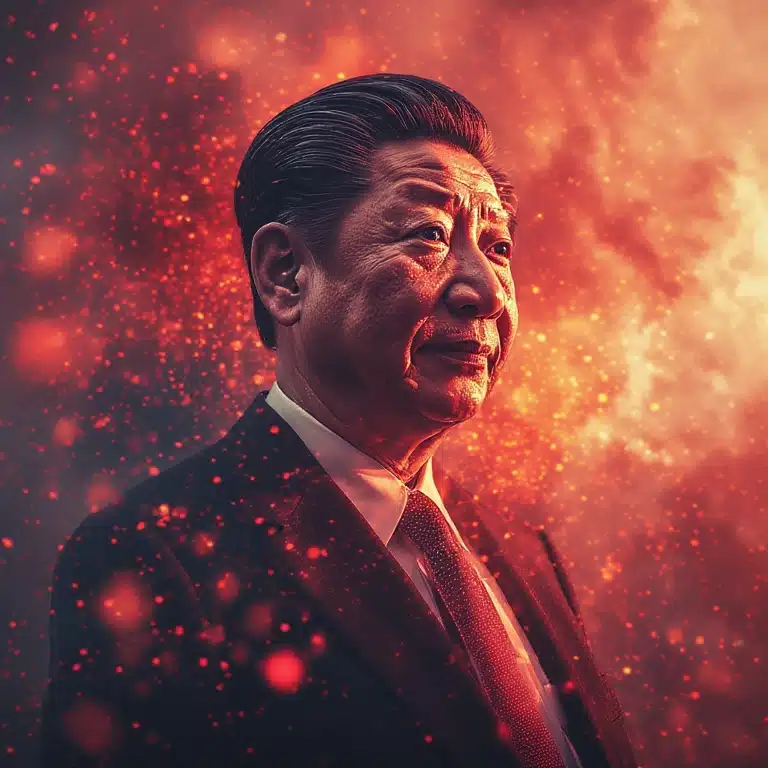
The Urgent Case for U.S.-China Decoupling
The United States stands at a crossroads in its relationship with China. Once seen as a partner in global economic growth, China under Xi Jinping has veered sharply away from the reformist vision of Deng Xiaoping, returning to a centralized, Maoist-style authoritarianism that threatens both U.S. interests and international stability. Recent events, from economic coercion to military provocations, make it clear that decoupling from China is no longer a policy option. Rather, it’s a strategic necessity.
On October 9, 2025, China imposed new export restrictions on 12 rare earth elements, materials critical to semiconductors, defense systems, and renewable energy technologies. These restrictions, which extend even to foreign-made products containing these minerals, represent a deliberate attempt to weaponize China’s dominant position in global supply chains. The provocative action by China will affect everything from auto production, aircraft engines, high tech and military equipment. It is very possible the global economy sinks into a recession if China doesn’t change its mind.
U.S. officials have condemned the move as a dangerous power grab, one that undermines international trade norms and threatens the technological and defense infrastructure of the United States. In response, the U.S. government has threatened sweeping tariffs on Chinese imports, signaling a readiness to counter economic coercion with decisive action.
China’s Growing Aggressive Posture
China’s aggression is not confined to economics. In the South China Sea, a Chinese Coast Guard vessel rammed a Philippine government boat near Thitu Island on October 12, 2025, a clear escalation in Beijing’s ongoing campaign of military intimidation. While China claimed the Philippine vessel ignored warnings, the incident was widely condemned as reckless and unlawful, prompting the U.S. to reaffirm its support for the Philippines under treaty obligations.
Similarly, China’s relentless psychological and military pressure on Taiwan, including bounties for information on Taiwanese defense personnel accused of “separatism,” underscores Beijing’s willingness to use intimidation to achieve geopolitical objectives. Taiwan continues to strengthen its defenses and seek international support, yet the risk of miscalculation in this powder keg region grows with every provocative action from China.
This confrontational trajectory is the product of an ideological shift under Xi Jinping. Deng Xiaoping’s reforms in the late 20th century opened China to market forces, decentralized power, and fostered integration into the global economy. Those reforms were pragmatic and forward-looking, prioritizing growth and stability over dogma. Today, Xi has centralized power to an extent unseen since Mao, suppressing dissent and reasserting absolute Party control over every facet of society. China’s current course is a rejection of Deng’s vision, a return to autocratic state control that poses fundamental challenges to the United States and its allies.
The Risk of Compromise
The implications are stark. U.S. dependence on Chinese supply chains, particularly in rare earths, critical technology, and pharmaceuticals, leaves us vulnerable to coercion and disruption. Intellectual property theft, coupled with Beijing’s aggressive posture in the Indo-Pacific, adds another layer of strategic risk. Continuing to engage China on traditional economic terms is no longer viable. It is becoming increasingly clear the United States must pursue a deliberate decoupling strategy.
Decoupling requires a comprehensive approach. This includes diversifying sources for critical materials, investing in domestic production, and strengthening trade and technological partnerships with allies in Europe, Japan, South Korea, and Australia. Protecting sensitive technology and infrastructure from Chinese influence is essential, requiring strict oversight of foreign investments and collaborations. At the same time, military readiness must be improved in the Indo-Pacific to deter aggression while diplomacy should be leveraged to maintain stability and reduce the risk of an accidental escalatory incident.
There will be Pain
After decades of China appeasement, giving ground and financing China’s ascension as a superpower, Americans must recognize that decoupling from China will not be easy or simple. In the short term, industries reliant on Chinese supply chains, such as electronics, rare earth minerals, and pharmaceuticals, will face higher production costs, potential delays, and temporary disruptions in manufacturing. Consumers may encounter higher prices for goods ranging from smartphones to electric vehicles, and U.S. companies will need to invest heavily in reshoring production and developing alternative suppliers.
China is counting on the American public’s weak will and intolerance for even minor pain to force spineless politicians to shrink from the challenge. Still, temporary challenges pale in comparison to the consequences of remaining dependent on a nation willing to leverage its economic dominance and engage in military intimidation. The alternative to continued reliance on a hostile competitor whose objectives increasingly conflict with U.S. security and global stability carries far greater long-term risks, including economic coercion, technological vulnerability, and the erosion of American influence in the Indo-Pacific.
It’s Time for Decisive Action on China
The urgency of this situation cannot be overstated. China’s hostile recent actions are not isolated incidents but deliberate components of a broader strategy designed to assert global dominance. Xi Jinping’s consolidation of power and ideological regression toward authoritarianism make it clear that China is no longer the pragmatic partner envisioned under Deng Xiaoping. The United States must respond with clarity, decisiveness, and a willingness to restructure its economic and strategic relationship with Beijing.
Uncoupling from China is not simply an economic maneuver. It is a safeguard for national security, technological sovereignty, and the democratic values the United States. The time for timidity has passed. Without decisive action, the U.S. risks remaining entangled with a nation whose objectives are increasingly incompatible with the principles of a stable and rules-based international order. Strategic independence from China is no longer a matter of preference. The reality is China has left us no choice.



